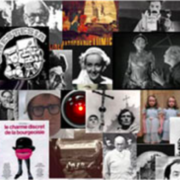The role of psychoanalysis in the welfare state crisis: from taking care of the patient to taking care of the healthcare institutions
Abstract
Recent developments in psychoanalytic outreach researches have offered ever more convincing evidences of a circular, mutual relationship between the internal world, the group and the external society. From such point of view, the author explores the current crisis scenarios of the welfare and the parallel crisis of credibility and market of the psychoanalytic therapy. He suggests that in the future psychoanalysis could shift its focus from individual treatment to the study of group and institution, to the point of recasting itself as a “clinical approach to organizations” to improve efficiency, awareness and well-being in the workplaces. To make it happen, it is necessary for psychoanalysis to overcome the mistrust for interdisciplinary dialogue with other approaches, methods and disciplines, and the discomfort in dealing with issues unrelated to its own culture, such as money, power and labor.








